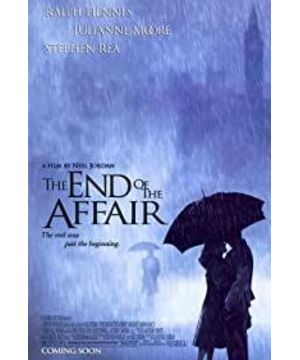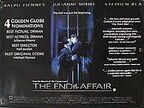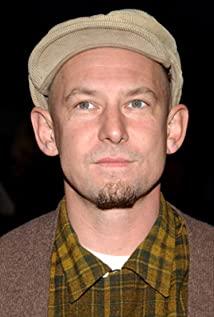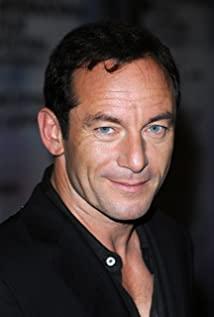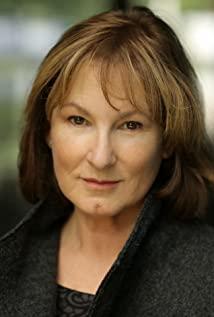The casting of the main characters is in line with the imagination. Ralph Fiennes played the lover's surly air, maybe too much. Julianne Moore, can witness the process of withering the rose in the battle between heaven and man. As for Stephen Rea, it was the hapless husband himself. The father and son detectives are also very good, and the comedy element almost makes them round.
The script is well adapted. The story after condensing and stripping away many details is completed in one go. The reality and the memory are frequently switched, but it is very comfortable, and people can quickly be brought into it without any barriers. Half of this is due to the internal strict logic, and the other half is due to the acting skills of the actors. Those eyes, the slight tremor of the facial muscles, the angle and posture between the extension and retraction of the hands... go directly into the depths of the viewer's heart, and can predict what will happen next. Witch-like foreknowledge is a brilliant achievement for actors and a curse for the viewer: because you know how you would feel in the same situation, love, hope, lose, cry ,will die. Heartbroken.
Surprisingly, "that" religious themes instead stand out in the flow of the plot - God's victory, God's love and miracles. The woman broke her promise to God and finally died, leaving behind her a string of miracles due to her kindness and virtue, like lighting a corridor of light leading to the kingdom of heaven - How much do you love to commit crimes, Greene saint! Two men, the husband is mediocre and dull, with tears in his eyes, standing in the ridiculous position he was assigned, just because the image is too secular and no one pays attention to his love and pain. As for the lover, the jealous lover is not with her husband or any other man, but is defeated in the battle with "him", the eternal "he". Lovers use jealousy to prove their love, but now "jealousy" is worthless in front of "him", what about love? What is the value of this fragile, selfish, fickle, and irrationally fanatical love of our human beings?
Lover and husband met in the rain in London at night: "You will catch a cold and die one day if you get caught in the rain like this." Similar lines appear over and over again in the play. Finally we figured out that it wasn't about rain. We don't believe that colds kill people, that love kills people, and we don't believe that miracles and God -- the age of religion is over. Until those events happen that are deeply against our will, destroy our beliefs, and needlessly take away what we love.
I remembered that in Chinese novels and operas, there is a common saying, after the protagonist is reunited after the twists and turns, he wipes a cold sweat and says: "God is pitiful..." Or in another situation, the protagonists look at each other With tears in their eyes, both wished: "If God is pitiful..." After that, there was a surging ups and downs of joys and sorrows. But people who read books or watch plays know by experience that with the humility of begging for mercy in this sentence, the ending of the story is not too bad. This is Chinese wisdom. But no matter Chinese or Western, the ultimate reason is that we are not sure about ourselves, our lover, and love itself (I would like to ask, how can we be sure?), so we have created an omnipotent "protector" or "imaginary enemy".
Sarra was an exception, saying: "Love doesn't end just because we don't see each other. People still love God, don't they? Even though they've never seen him in their entire lives." "That's not my kind of love." "Maybe also There is no other kind." This conversation is really heart-wrenching, but unfortunately we always have to go for a long time before we know how crucial the words our lover said back then.
"I can't be responsible for that kind of commitment. But something tells me that I have to be responsible. I challenged my fate, and my fate accepted it." The woman in red, walking on the streets with bullets and smoke after the air raid, was like walking on the trial of God Field - perhaps it will be easier to accept war and death. The deadly chronic disease took root at this moment. God has no choice, she must die. This is fate. We have no subject to summarise about destiny.
Wow, what a silly thing to look for in a subject. The real sticking point is how scared and how eager we are to know "when is the end"? The end of the relationship is the surface of the earth after the doomsday catastrophe, a barren, but not empty, because everything once existed. Sarra got to the ruins earlier than the two men, and I guess she gave the answer: nothing will ever come back, love ends, and at the same time it never ends.
View more about The End of the Affair reviews


